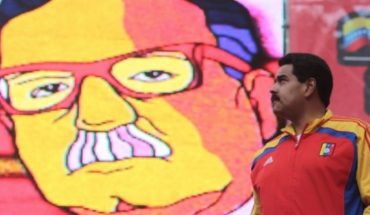Human Rights Watch’s director for the Americas, José Miguel Vivanco, referred to Carabineros acting amid the social protests that are already serving 42 days in the country.
In an interview with the program Estado Nacional de TVN, Vivanco commented that Chile faces two situations that put it on a particularly complex scenario. “One is public order,” he said, explaining that Chile is facing a huge challenge with groups that “act in a vandalistic way with great violence, with destruction, trying to impose their rules, which are typical of crime.”
In the face of such violence, he claims that there can be no tolerance and there must be a reaction, a unanimous, of rejection and neutralization, of control, of prosecution “to those who are involved in acts of violence”.
At the same time, the other situation is “a public force problem,” he said.
Asked for the state’s reaction to the violence, Vivanco made a diagnosis of the Chilean public force and called it “well below the standards”.
“It is a public force that does not have the training, does not have the controls, and that usually acts with violence, brutality, without distinguishing between peaceful and violent protesters, and then, in detention, they do what they want with the detainees, without it existing effectively a mechanism that manages to prevent these facts,” he said.
In addition, Vivanco notes that there was a “abandonment” by the political class “in the face of public forces concerns.” “Carabineros does not have the conditions, the preparation or the controls” and “operates with a culture of impunity and abuse,” he added.
It should be noted that HRW was one of the agencies that the same Government invited to the country to see on the spot the human rights complaints committed during the social outburst. It will not be the only information they receive, as the UN’s fault is missing.
Described both situations, the lawyer commented that if both manage to be “above the table” in front of the two political sectors, progress could be made.”
In the same vein, Vivanco referred to the report that the agency published this week and which found serious violations of human rights, as well as suggesting a thorough reform of the police.
“The report we published was well received, both by the various political sectors in Chile and by the Government. It is always important to have a partner who does not ignore or reject a human rights diagnosis, because if there is a radical discrepancy with the diagnosis and the proposals that are made — in any report, in any country — it is very difficult to make progress,” he concluded.
translated from Spanish: Vivanco’s diagnosis of Carabineros: “It is a public force that does not have the training, does not have the controls, and that is accustomed to act with violence”
December 1, 2019 |





